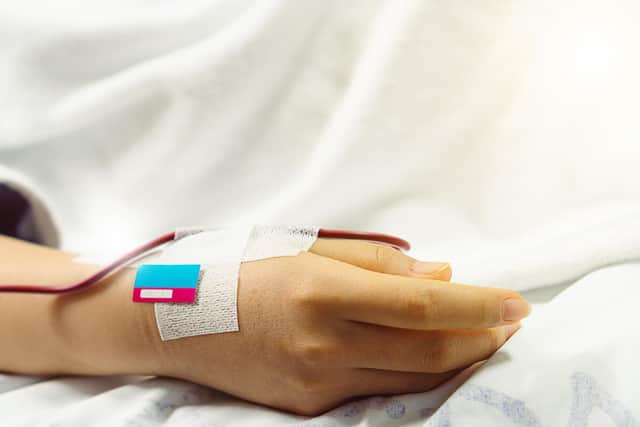Study could speed up access to bowel cancer tests in South Yorkshire
Under a research study, funded by Yorkshire Cancer Research (YCR) and led by teams at the University of Sheffield, academics are to explore the use of community pharmacies instead.
Those with symptoms could access home test kits, and then be fast-tracked straight to hospital under a trial aimed at speeding up detection while relieving pressure on the NHS.
Advertisement
Hide AdAdvertisement
Hide AdMore than 1,000 people a year are diagnosed with bowel cancer in South Yorkshire alone, YCR's director of research Dr Stuart Griffiths has said, with half discovered at a late stage.


He said: “Raising awareness of symptoms is an important way to improve early diagnosis, but it’s vital that when people do come forward for medical advice, they are able to benefit from diagnostic tests as soon as possible.”
The study is to focus on the most deprived areas of South Yorkshire, where experts say a shortage of GPs means people are having more difficulty booking appointments.
According to NHS data, the patient list for the average South Yorkshire GP has grown 12 per cent in the eight years to December, as registrations grew and doctor numbers dipped.
Advertisement
Hide AdAdvertisement
Hide AdLast year, one in eight GP appointments across Yorkshire were attended more than two weeks after being booked, while in South Yorkshire that was one in six for September.
These communities are also often diagnosed at a later stage, when the cancer is harder to treat, and have been found less likely to take part in national bowel screening programmes.
Under the trial, pharmacists will be trained to spot 'red flag' symptoms of bowel cancer, such as bleeding, a change in bowel habits, unexplained weight loss, tiredness or pain.
They will then be able to speedily distribute kits, detecting tiny traces of blood, and then either fast-track patients to hospital or refer them back to their GP.
Advertisement
Hide AdAdvertisement
Hide AdDr Matthew Kurien is a senior clinical lecturer at the University of Sheffield and Consultant Gastroenterologist at Sheffield Teaching Hospitals NHS Foundation Trust.
“Bowel cancer kills more people than almost any other cancer, yet early detection rates in the UK still lag behind," he said.
"Through this study we aim to improve early detection through innovation, prevent unnecessary deaths and uplift deprived groups often most affected by health inequalities.”
The new study, named DETECT-CRC, is part of a collaboration that aims to create a hub of groundbreaking research in Sheffield, attracting talented researchers and experts to the region for the benefit of everyone living in Yorkshire and beyond.
Advertisement
Hide AdAdvertisement
Hide AdIf successful, it will provide the evidence needed to roll out similar programmes more widely.
The announcement comes as scientists in Glasgow put a new focus on imaging technologies, which they say could "revolutionise" diagnostics and treatment, examining tumours inside the body rather than relying on biopsies.
Comment Guidelines
National World encourages reader discussion on our stories. User feedback, insights and back-and-forth exchanges add a rich layer of context to reporting. Please review our Community Guidelines before commenting.